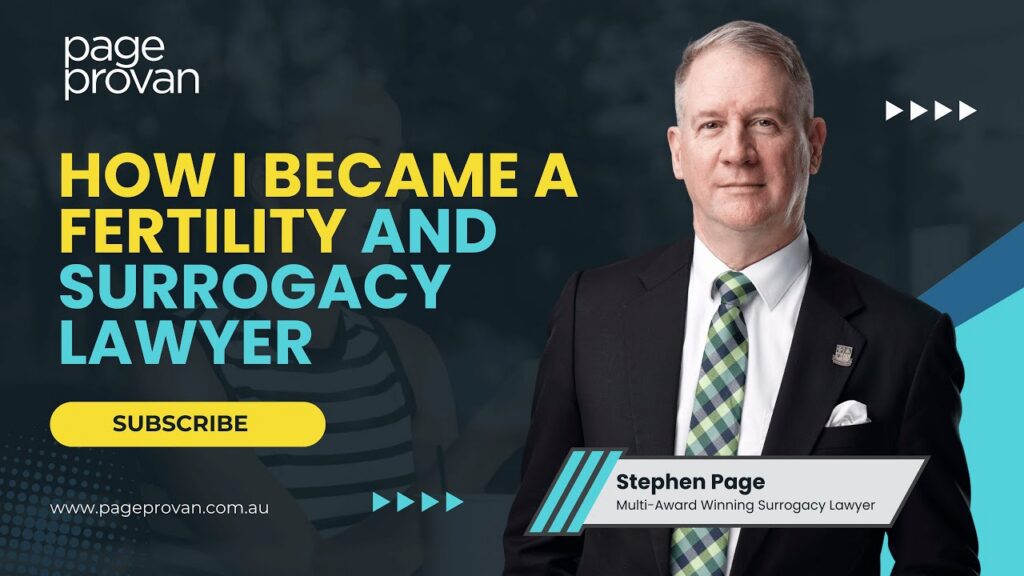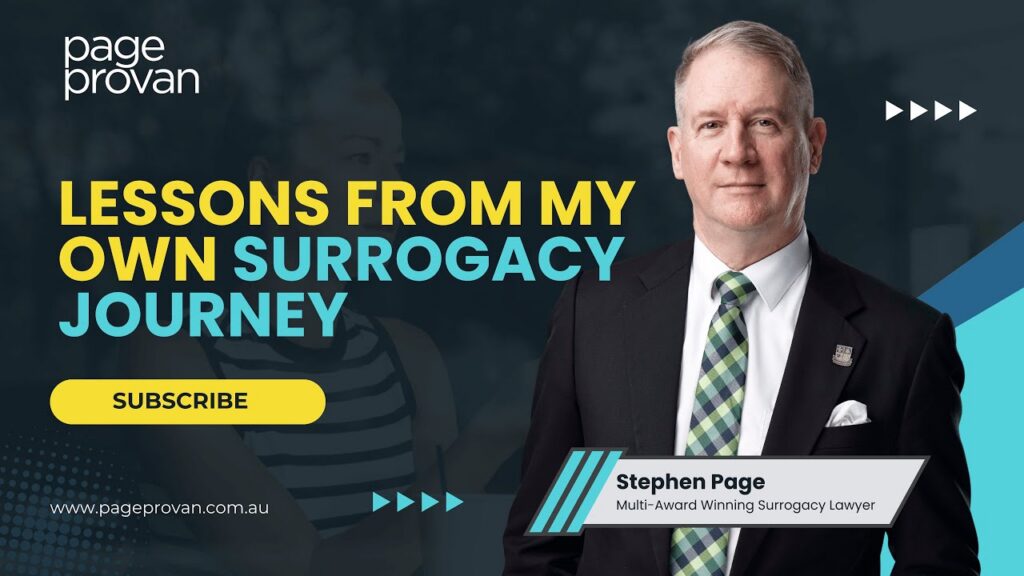What You Need to Know About Consent Orders
In this video, Accredited Family Law Specialist and Page Provan Director Stephen Page discusses in detail everything you need to know about consent orders.
Transcript
Good day, everyone. [It’s] Stephen Page from Page Provan Family and Fertility Lawyers. I’m going to talk to you about consent orders.
I’ve forgotten when I first heard the term consent orders. You probably weren’t born when I first heard that, I suspect it was as long ago as 1985. Cast your mind back to what you were doing in 1985. If you were alive, then it was a very, very long time ago. And yet that term has haunted me ever since. It’s one of those terms.
You go, “What does it mean?” Well, in essence, it’s a deal, and it’s a deal between people who for some reason have ended up in the family law system. And it’s saying we agree to the making of these orders. So there must be a minimum of three people to this deal. If you’ve got a couple, it’s each of them.
And then you have a judge or a Registrar, or, as they’re now titled, Judicial Registrar, who makes that order. So the court has to be satisfied that the terms are fair. So if it’s a property settlement, the court has to be satisfied that the terms are what they call just and equal. Or I like to say, fair. And the court in doing that has to look at the provisions of the Family Law Act that determine who gets what and why.
So far as any order concerning children is concerned, the court has to be satisfied that the proposed orders are in the best interests of the children. And again, the court has to go back to those provisions of the Family Law Act that talk about the best interests of the children and set out certain criteria that have to be met, including addressing issues of involvement of each of the parents as far as that can occur and addressing issues such as abuse and family violence.
Are you a lawyer who specialises in this area? Chances are you’re not. If you’re any ordinary mum or dad, whether you’re talking about parenting orders or you’re talking about property orders, chances are, if you draft this document, these orders, this complicated document, you’ll screw it up.
Dr Johnson said way back in the 18th century, and I apologise for the gendered language that a man who acts for himself has a fool for a client. This is the reality. If you act for yourself and please, please get some legal advice, don’t do the drafting yourself, because if you do, then if you haven’t got it right, you are either stuck in a situation that you can’t fix or you have to pay a lot, lot, lot more for someone like me to unpick the deal. And I’ve had to do that.
I’ve seen when parties have decided, “ell, we’ll save a few cents here and a few cents there and do a property settlement deal and do a transfer of a rental property.”
Whoops, what was the outcome? My client had a tax bill of $10,000 that she couldn’t make straight away. Did the ATO care about that? No. They just wanted their money.
Were they entitled to their money? Yes. Why were they entitled to their money? Because there was capital gains tax payable. Could she have avoided capital gains tax being paid? Yes. How could she have done that? By properly drafting the orders.
Or another example with parenting orders is to have a deal about the amount of time that you have with a child. But it doesn’t increase. And you then say we meant to put that in. We agreed to put that in, but we didn’t actually do that or draft it right. And so when you go to the court, you say, just fix that. Well, it’s a maybe if you want to go back to the court at that stage, they’re all the hurdles.
Have you participated in family dispute resolution, or are you in one of the exceptions? Assume you’re not in the exception, then you’ve got to go through family dispute resolution, assuming the other side don’t agree. Which is why you’re talking to me in the first place. So you either pay for that or wait. And you might wait months for that. Once you get past that little hurdle and you’ve got your little certificate that says, off you can file, then you file.
Guess what? You might wait another four months before you get your first date in court. Not the last date, but the first date. And then you’re met with this response: “Well, according to the rule in Rice and Asplund, this deal has just been done and you’re stuck with it.”
And I’ll talk in another video about the rule in Rice and Asplund. But let me put it this way. When you cut a deal about your kids, it’s assumed to be the final deal. You’ve got to show there’s some change in circumstance. The other side say there hasn’t been any change in circumstance, and then you find worst outcome, you’re hosed out on day one with a significant cost order to boot.
Consent orders are made either in one of two ways. Either you turn up to court and these days, of course, it’s money by phone or teams. But sometimes we actually have real court appearances where I turn up in a courtroom and then the judge makes an order or the Judicial Registrar or Registrar, whoever it may be, is the judicial officer that we appear before. Or more commonly, they are made on the papers.
So what that means is that we have a form to fill out, which is an application for consent orders. There’s a whole lot of stuff that’s going to be provided in that. We’ve got to make sure it’s right. We’ve got to tell the court it’s the truth. We’ve got to provide with that application a fee because we don’t escape that.
There’s always a fee payable to the government for this service. But it’s cheaper than going to court. Much, much cheaper. And along with that, a copy of the consent orders that everyone has signed up, and then we lodge it. And in the past, we would have someone physically take it to the court.
These days, it’s done all online. So that’s wonderful. That’s saving some costs and making it easier to do. And then we wait.
In the past, we might have consent orders made in a couple of weeks.
Or if things are slow, a couple of months. At the moment, things are slow. The court seems to be overwhelmed by the number of changes that it’s going through. And I cover that in another video. But be assured, once lodged, the court will deal with it.
And if the Registrar is satisfied as to the terms they’re made, and then you can get on with your lives.












